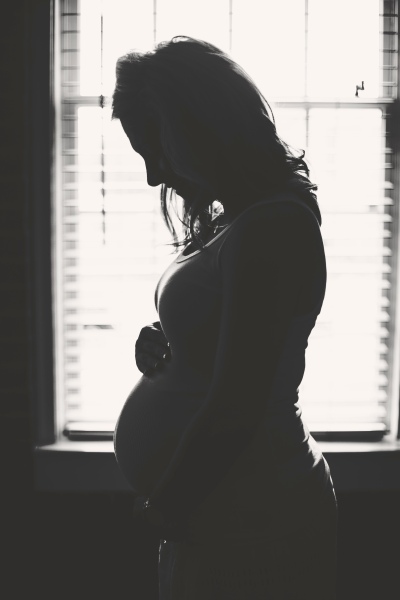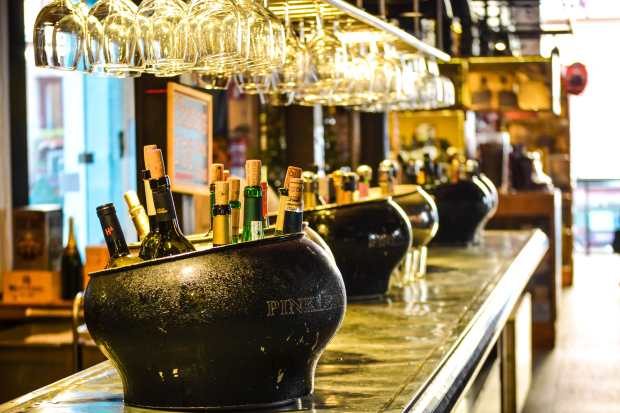I’m bracing myself right now. What I’m going to say won’t be popular, but I think I need to do it. By way of introduction, I’d like to say that I gave up drinking aged 25, as I had a severe reflux problem and even a few mouthfuls of an alcoholic drink made me nauseous. I haven’t drunk since, and I think that distance from alcohol, from drinking, has really opened my eyes a lot.
Firstly, a look at the country’s general attitude to alcohol:
- it’s mostly harmless
- it enhances most situations
- it’s the solution to our problems
- it’s a crucial part of most social events
- those who don’t drink are weird and killjoys
- tales of drunkenness are funny
- it’s fine to be an alcoholic as long as you still wash and aren’t homeless
Alcohol can be tasty and relaxing, it can give Dutch courage and brighten up a boring evening. It can also, to some extent, drown sorrows. But at the same time, it can do a great deal of harm. It can contribute to unwanted pregnancies, STDs, broken relationships, health problems, accidents and domestic violence.

I once lived in a house with a lot of drinkers, including one alcoholic and a couple of borderline alcoholics. As a non-drinker, I wasn’t fully accepted by some of them. One sometimes tried to convince me I’d have more fun if I drank, but to be honest living there made me pretty glad I didn’t drink. For a start, the alcoholic had lost friends and opportunities due to her drunken behaviour, and was on the way to losing her relationship. Her boyfriend sometimes slept in the living room when she was drunkenly aggressive. She was a complete mess when drunk: we all got drawn in to her drunken hysteria. She also got cancer, for the second time, which can only have been aggravated by the drinking.
Others in the house also got aggressive when drunk, having pointless arguments. One messed up the football journalism he did at weekends due to turning up late and hungover. There was general disturbance and antisocial behaviour. Alcohol could not have been less attractive.

Another effect of alcohol that is often overlooked is the increased risk of accidents. This was demonstrated to me in a striking way when one of my close friends lost his best friend when he fell on the tube tracks after a night out.
It’s a myth that you have to be an alcoholic to get alcohol-related health problems. As the NHS site puts it: ‘Most people who have alcohol-related health problems aren’t alcoholics. They’re simply people who have regularly drunk more than the recommended levels for some years… And it’s certainly not only people who get drunk or binge drink who are at risk. Most people who regularly drink more than the NHS recommends don’t see any harmful effects at first.’ The NHS recommends less than 2-3 units a day for a woman, and less than 3-4 for a man. More than 9 million people in England drink more than that [1].
Health problems linked to alcohol consumption are [2]:
- cancer
- brain damage
- high blood pressure and heart failure
- sudden death due to irregular heartbeat
- depression and other mental health problems
- sexual problems, including infertility
- obesity
- disrupted sleep
- osteoporosis
- kidney disease
- increased risk of pneumonia
- stomach ulcers
Now for some surprising alcohol-related stats. You ready?
In 2013/14, there were an estimated 1,059,210 hospital admissions related to alcohol consumption where an alcohol-related disease, injury or condition was the primary reason for hospital admission or a secondary diagnosis [3].

In England, in 2013 there were 6,592 alcohol-related deaths. This is a 1 per cent increase from 2012 (6,495) and a 10 per cent increase from 2003 (5,984) [4].
Alcohol abuse is the third highest cause of death in the U.S. [5].
Even if you are a moderate drinker, is alcohol really something you want to advertise, a trade you want to support? And do your comments about alcohol encourage alcoholism and reckless behaviour? Since becoming a non-drinker, I’ve been surprised at how many people have criticized the fact I don’t drink (even a barman I’d only just met!). Virtually no-one has praised it. We are living under a delusion: the delusion that alcohol is our best friend. The delusion that we need it to have fun or forget our worries or chat people up on a night out (trust me, I’ve managed all three of these without alcohol). We are buying into the delusion that it is both harmless and necessary in our lives.
We are encouraging alcoholism, glamorising it even. We aren’t helping those who suffer from it. I know this from the house-share I mentioned above: when the alcoholic young woman tried to quit, mainly on an ultimatum from her boyfriend, others in the house drunk in the house and encouraged her to join in.
Approximately 17 per cent of men and 8 per cent of women will be dependent on alcohol in their lifetime (http://www.niaaa.nih.gov/alcohol-health/overview-alcohol-consumption/alcohol-facts-and-statistics). We need to wake up to the realities of alcohol and stop making drinking feel obligatory at social events, a sign of being cool and fitting in. Interestingly, it could be today’s young people who are leading the way: fewer and fewer young adults (16-24 years old) drink alcohol, and of those who do, fewer engage in binge drinking (a decrease of 1/3 since 2005) [6].

Over 21% of adults don’t drink at all, so if you give up you won’t be alone [7]. And you’ll actually be more bohemian than when you drank [8]. You’ll be fitter, less likely to get a horrible illness and less likely to die in an accident. You’ll be helping those with an alcohol problem to feel comfortable not drinking at social events. You’ll be advertising the fact it’s ok not to drink alcohol. You’ll probably also be nicer to people, have safer sex and drop that embarrassing late-night texting.
As I mentioned, I gave up alcohol because it was more unpleasant than pleasant for me, due to the nausea. But in all honesty, save the first few months of sobriety and a few isolated occasions since, I’ve been glad I did. My drinking practices were already a bit dodgy and, given some of the hellish times I’ve had over recent years, I’m sure they’d have gotten worse.
Deep down, do you believe our drinking culture is a good thing?
Share your stories of alcohol-related problems, or your personal experiences with alcohol below. Go on, I dare you.
Related links
Another former drinker’s perspective and experience; an interesting piece:
https://soberistas.wordpress.com/2013/09/03/booze-britain/
Also:
https://wordpress.com/read/blogs/51344657/posts/6883
This is from a blog about life post-drinking.
—–
Some interesting facts and figures (graphs etc) on alcohol consumption patterns:
https://citydistilled.wordpress.com/2014/05/05/uk-drinking-patterns-2/
This is from an alcohol-related blog.
—–
Tips and advice on cutting back:
—–
On alcohol and obesity: https://www.theguardian.com/society/2007/oct/16/drugsandalcohol.health
https://www.theguardian.com/commentisfree/2012/dec/14/boozy-britain-why-do-we-drink
https://www.theguardian.com/commentisfree/2013/may/08/minimum-pricing-alcohol-red-faced-ranters
—–
Interesting observations of an American woman on our alcohol culture, though the piece was surrounded by huge ads for gin when I looked!
http://www.dailymail.co.uk/femail/article-1076364/Why-Brits-DRUNKS–asks-American-writer.html
—–
If you’re really into the topic, a book!
https://www.amazon.co.uk/Binge-Britain-Alcohol-National-Response/dp/0199299412
References
1: https://www.alcoholconcern.org.uk/help-and-advice/statistics-on-alcohol
2: http://www.niaaa.nih.gov/alcohol-health/alcohols-effects-body
3: http://www.hscic.gov.uk/catalogue/PUB17712
4: http://www.hscic.gov.uk/catalogue/PUB17712
5: http://www.cdc.gov/alcohol/data-stats.htm
6: http://www.hscic.gov.uk/catalogue/PUB17712
7: http://www.hscic.gov.uk/catalogue/PUB17712
8: http://www.cloudsandwavescrafts.co.uk/blog/teetotal-punctual-and-bohemian

Wonderful and well-researched article, and I couldn’t agree with you more. It’s amazing how few people know about the health hazards of even “moderate” drinking.
Thank you!!
LikeLiked by 1 person
Thanks for your comment asobermiracle 🙂
LikeLiked by 1 person
Very well done and balanced while being properly forceful. While developing my specialty in the Anthropology of Death & Dying I was permitted to sit in on Alcoholics Anonymous meetings. Your information, and the perspective within which you frame it, is entirely accurate. Marco
LikeLiked by 1 person
Thanks!
LikeLike
I guess this very well informed piece backs up my contention that society is going sober.
LikeLiked by 1 person
interesting and worth reading by drinkers and nondrinkers alike
LikeLike
Glad you think so! Thanks for the comment.
LikeLiked by 1 person